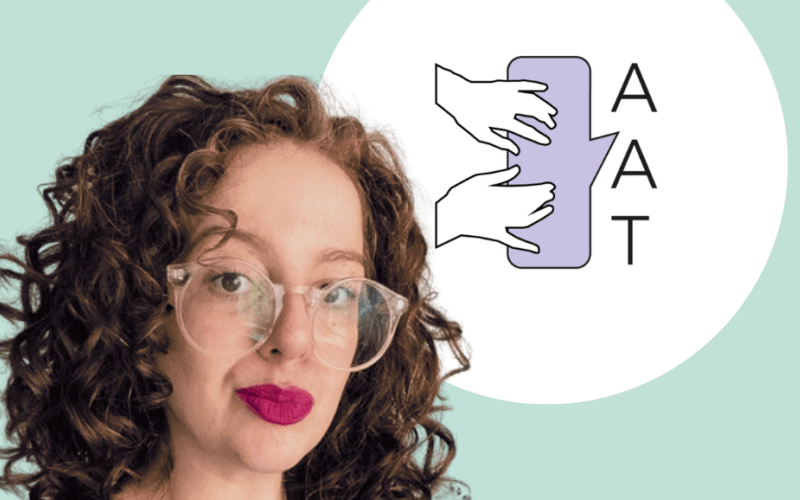By Josephine Fay
A disabled-led business that provides work for more than 20 disabled freelancers at a time is urgently seeking new clients, and financial support, after its profits were severely hit by the rise of artificial intelligence (AI).
Academic Audio Transcription (AAT) has already raised more than £6,000 through a crowdfunder, but this is only enough to pay its overheads for a month.
Now it desperately needs to find new clients to secure its future.
The company specialises in transcribing lectures, conferences, workshops and interviews, and providing closed captioning services.
But its client base has been hit by the “problematic” rise of AI, while its biggest market, the university sector, is in “chaos”.
AAT’s founder Zara Bain (pictured) believes that AI provides poorer quality transcripts than those produced by humans, failing to take account of accents or context and nearly always proving less accurate.
She said: “Whilst we’re not opposed to using technology, we believe that AI for transcription is deeply flawed.”
AI captions are also flawed and can often be inaccessible and inaccurate, failing to capture the names of people, places and organisations, she added.
She set up AAT seven years ago when she was forced to take medical leave from her PhD and needed to find a way to pay her rent and bills.
It offers work to its disabled freelancers “at the pace and capacity that people can manage”, allowing them to work remotely around their “flare-ups, crashes, relapses and remissions”.
Bain said that AAT has “transformed” the lives of its disabled freelancers.
She said: “A key part of our mission is to use our business to make fairly-paid, accessible work for predominantly disabled, chronically-ill and neurodivergent freelancers, where such work can be hard to come by, or often comes with inaccessible strings attached.”
At a time when the employment rate for disabled people remains about 30 percentage points below that of non-disabled people, with workplace discrimination still widespread, AAT’s inclusive work environment allows her team to work without the fear of discrimination or judgment, she said.
She decided to launch the company because she knew the importance of making content accessible.
She said: “People who are deaf or hard of hearing rely on captions or transcripts to access audio content like interviews, podcasts, and events.
“Transcription removes the barrier of audio-only information, allowing them to participate equally.
“This is also true for people who might struggle to process information through audio alone.
“A written transcript allows them to follow along, read at their own pace, and revisit key points.”
But as she says on the crowdfunder: “AAT is more than a business to us, it’s a manifestation of not just our belief in equality and equity of opportunity, but our need to realise that belief as a reality to pay our bills, feed ourselves and our kids, and keep ourselves engaged with stimulating work which contributes to projects that really do make a difference.”

 Bill would force banks to carry out ‘mass surveillance’ of millions of innocent disabled people, MPs are told
Bill would force banks to carry out ‘mass surveillance’ of millions of innocent disabled people, MPs are told Kendall’s comments show new bill to order banks to ‘spy’ on benefit claimants will be based on Tory plans
Kendall’s comments show new bill to order banks to ‘spy’ on benefit claimants will be based on Tory plans New DWP bank ‘snooping powers’ would ‘treat disabled people like criminals’
New DWP bank ‘snooping powers’ would ‘treat disabled people like criminals’